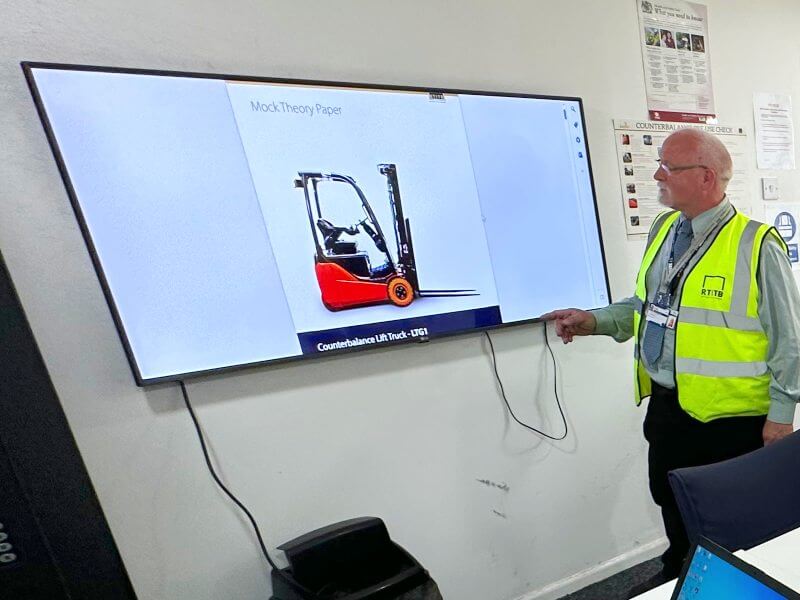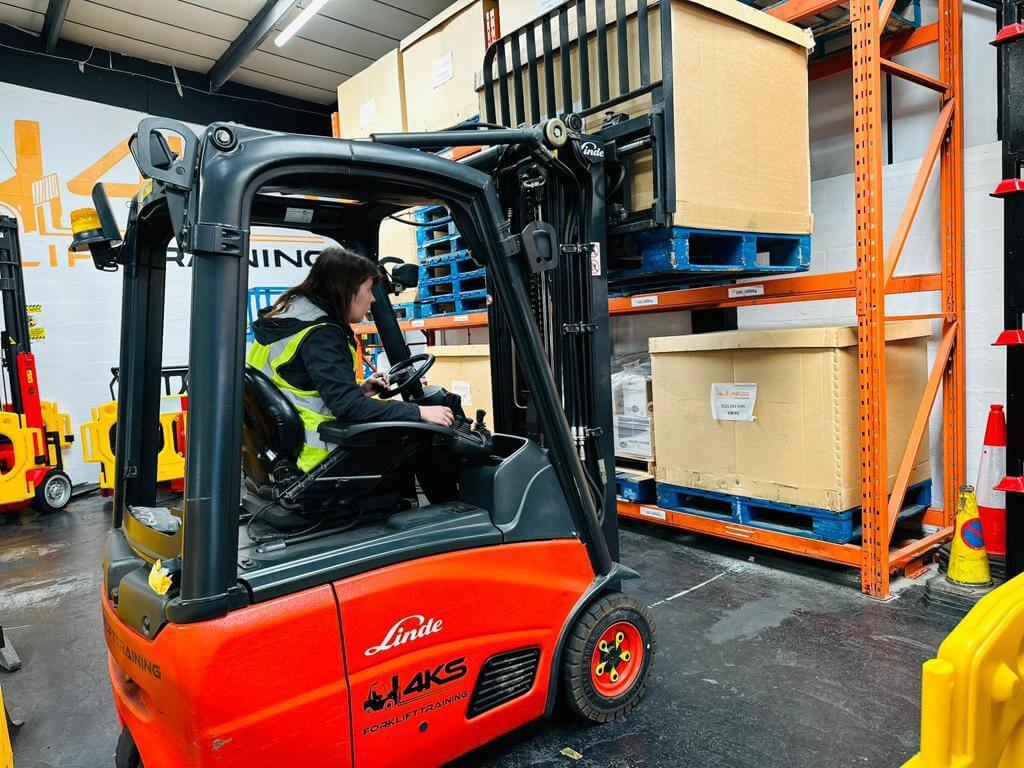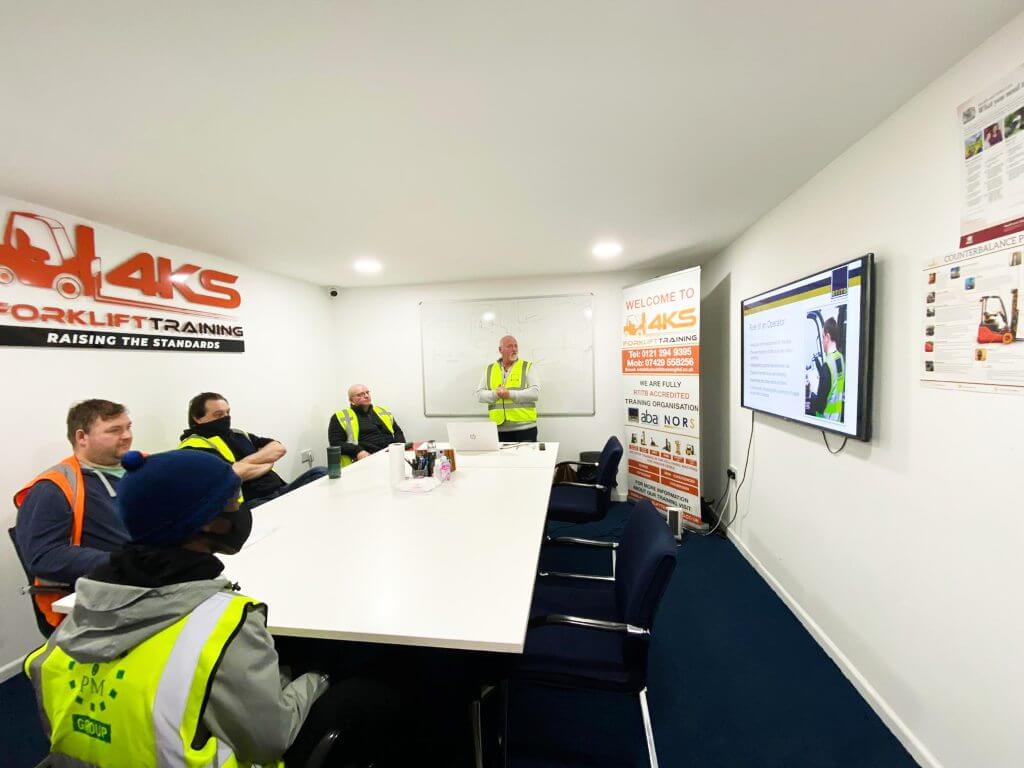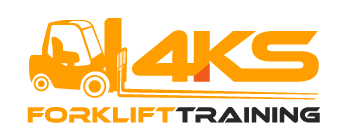Forklift Theory Test: A Key Step Towards Safe Operations
Introduction
When it comes to operating forklifts, ensuring safety and efficiency is paramount. This is where forklift training and theory tests play a crucial role. At 4KS Forklift Training, a leading training centre based in Birmingham and Peterborough, we understand the significance of thorough training and assessment. Our focus is to provide comprehensive forklift training to equip operators with the necessary skills and knowledge. One crucial aspect of this training is the forklift theory test.
Understanding the Forklift Theory Test
The forklift theory test serves as a vital component in evaluating an operator’s understanding of safe forklift operations. By assessing theoretical knowledge, it helps ensure that operators are aware of the essential guidelines and regulations that govern their work. Here are some key aspects to understand about the forklift theory test:
Purpose of the Forklift Theory Test
The primary purpose of the theory test is to gauge an operator’s knowledge and comprehension of important aspects related to forklift operations. It covers various topics, including safety regulations, equipment maintenance, load handling procedures, and general operational guidelines.
Format and Number of Questions in a Forklift Theory Test
Typically, the forklift theory test consists of 25 questions, with a combination of open-ended and multiple-choice questions. Out of the 25 questions, 5 are open-ended, requiring a written response, while the remaining 20 are multiple-choice questions. To pass the forklift theory test, it is required to achieve a minimum pass mark of 80% or higher.
Type of Questions asked on a Forklift Theory Test
The questions asked on a forklift test can cover various aspects of forklift operation and safety. Some common topics include load handling, stability principles, manoeuvring in confined spaces, proper use of controls and instruments, hazard awareness, and emergency procedures. The specific questions will assess your knowledge of regulations, best practices, and safe operating procedures. It is important to study and understand these areas thoroughly to confidently answer the questions and demonstrate your competence as a forklift operator.
Significance of Theory Tests
Theory tests hold immense significance as they ensure that forklift operators possess the necessary theoretical knowledge to operate the equipment safely. By assessing their understanding of key principles and regulations, these tests contribute to reducing workplace accidents and promoting a culture of safety.
Availability of Theory Tests
FLT theory tests are an integral part of forklift training programs and are widely available for aspiring forklift operators. Recognised certification bodies like the Road Transport Industry Training Board (RTITB) provide standardised theory tests that align with industry standards and best practices.
At 4KS Forklift Training, we offer comprehensive forklift training courses that include theory test preparation. Our training centres in Birmingham and Peterborough provide a conducive environment for learning and preparing for the theory test.
Table of Contents
Preparing for the Forklift Theory Test
- Review Relevant Material: Familiarise yourself with the theory test content by studying materials such as manuals, safety guidelines, and instructional videos provided during the training course. 4KS Forklift Training provide a lift truck operator safety code book as part of your training.
- Practice with Sample Questions: Take advantage of resources that offer practice forklift theory test questions and answers. These resources, available online and through training providers, help you become familiar with the format and types of questions that may appear on the actual test.
- Focus on Key Areas: Pay special attention to topics such as safety regulations, hazard awareness, load handling techniques, and equipment maintenance. These areas are often emphasised in the theory test.


Passing the Forklift Theory Test
- Study and Review: Continuously review the study materials provided during your forklift training course. Ensure you understand the important concepts, safety guidelines, and best practices related to forklift operations.
- Manage Your Time: Allocate enough time to study and prepare specifically for the theory test. Create a study schedule and stick to it, ensuring you cover all the necessary topics and practice sample questions.
- Take Advantage of Resources: Utilise the resources available to you, such as study guides, online courses, and practice tests. These resources can provide valuable insights and help you become more familiar with the test format.
- Stay Calm and Focused: On the day of the test, remain calm and focused. Read each question carefully, and avoid rushing through the answers. Take your time to analyse each option before selecting the most appropriate one.
- Retaking the Test: In the event that you do not pass the forklift theory test, don’t be discouraged. You will have the opportunity to retake the test after further preparation. Learn from the areas where you struggled and focus on strengthening your knowledge before attempting the test again.
Remember, the forklift theory test is designed to ensure your understanding of critical safety measures and operational guidelines. By preparing thoroughly and adopting the right mindset, you can increase your chances of passing the test and obtaining your forklift licence.
Essential Knowledge for Forklift Operators
As a forklift operator, it is crucial to have a solid understanding of key principles and safety guidelines. Let’s address some specific questions related to forklift operation and highlight essential knowledge that every operator should possess.
Last Thing a Forklift Driver Should Do Before Moving Off
Before moving off, a forklift driver should perform a series of checks to ensure safety and proper operation. These checks include:
- Checking the surrounding area for any obstacles, pedestrians, or potential hazards.
- Ensuring the load is stable and properly secured.
- Adjusting mirrors and seat position for optimal visibility and comfort.
- Testing the brakes, horn, lights, and other essential components to ensure they are in working order.
By completing these checks, the forklift driver can minimise the risk of accidents and ensure a safe start to their operation. Visit our forklift training courses page, which provides information about the different types of forklift training courses available.


The "3-Foot Rule" in Forklift Safety
The “3-foot rule” is a fundamental safety principle in forklift operations. It refers to maintaining a safe distance of at least three feet (or one meter) from objects or people while operating the forklift. This rule helps prevent collisions, crush injuries, and other accidents that can occur due to the forklift’s movement or swinging of loads. Operators should maintain situational awareness, use caution, and adhere to the 3-foot rule at all times to mitigate the risk of accidents.
Please note, this is different to the ‘three points of contact‘ rule, which requires operators to maintain three points of contact with the forklift at all times when entering, exiting, or operating the vehicle.
Five Important Safety Rules for Forklift Operators
Ensuring safety is of utmost importance when operating a forklift. Here are five essential safety rules for forklift operators:
- Proper Training: Operators should undergo thorough forklift training, including theory and practical instruction, to understand the equipment, safety procedures, and operational techniques.
- Seat Belt Usage: Operators must always wear their seat belts while operating the forklift to minimize the risk of injury during potential accidents or tip-overs.
- Safe Load Handling: Proper load handling is crucial for maintaining stability and preventing accidents. Operators should ensure loads are within the equipment’s capacity, properly balanced, and securely positioned on the forks.
- Clear Visibility: Maintaining clear visibility is vital for safe operations. Operators should keep the forks at a low height, use mirrors and spotter assistance if necessary, and avoid operating with obstructed views.
- Caution in Hazardous Areas: Operators must exercise caution when working in hazardous areas, such as ramps, inclines, or confined spaces. Adhering to speed limits, following designated pathways, and respecting signage are essential for safe operations.
By following these safety rules, forklift operators can contribute to a safer work environment for themselves and those around them.
At 4KS Forklift Training, we offer comprehensive forklift training courses, including counterbalance forklift training, reach truck training, and forklift instructor courses. Our training centres in Birmingham and Peterborough provide a conducive learning environment for individuals seeking professional forklift training. Additionally, we offer forklift refresher training courses to help operators maintain their skills and stay updated with industry best practices. For companies requiring onsite training, we also offer workplace forklift training options to cater to their specific needs.

Duration and Cost of Forklift Training
When it comes to forklift training, the duration and cost can vary depending on several factors. Here’s an overview of what you can expect:
Typical Duration of a Forklift Course in the UK
In the UK, a standard forklift training course usually lasts between 3 to 5 days. During this time, participants receive both theoretical and practical instruction to develop the necessary skills and knowledge required for safe forklift operation.
Factors Influencing the Length of Training
The duration of forklift training can be influenced by various factors, including:
- Previous Experience: Individuals with prior experience or those seeking forklift refresher training may require a shorter duration compared to complete beginners.
- Trainee’s Aptitude: The learning pace and ability of the trainee can also impact the length of the training.
- Course Type: Different types of forklift training, such as counterbalance, reach truck, or LLOP training, may have varying durations based on the complexity of the equipment and specific operational requirements.
Costs Associated with Forklift Training
The cost of forklift training can vary depending on factors such as the type of course, training provider, and location. It is essential to choose a reputable training centre that offers comprehensive instruction and practical experience to ensure the best value for your investment.
At 4KS Forklift Training, we provide competitive pricing for our forklift training courses. Please contact us directly to inquire about specific course costs and any available discounts.
Additionally, we understand that some companies prefer onsite forklift training to minimise disruption to their operations. We offer onsite forklift training services to cater to such needs. Our experienced instructors can provide training at your company premises, ensuring that your employees receive the required knowledge and skills within your working environment.

Conclusion
At 4KS Forklift Training, we are dedicated to providing high-quality forklift training courses in Birmingham, Peterborough, and onsite at company premises. Our accredited forklift instructors, comprehensive courses, and commitment to safety, make us a trusted choice for individuals and companies seeking professional forklift training.
Don’t compromise on safety. Choose 4KS Forklift Training for your forklift training needs. Contact us today to book your course and take the first step towards becoming a skilled and responsible forklift operator.
Frequently Asked Questions
Here’s a summary of the common questions you may have around the forklift theory test and forklift training courses in general. We hope you find these helpful.
How many questions are on the forklift theory test?
The forklift theory test typically consists of 25 questions. Out of the 25 questions, 5 are open-ended, requiring a written response, while the remaining 20 are multiple-choice questions.
Is there a theory test for forklift?
Yes, there is a theory test for forklift operators. The theory test is designed to assess the operator’s knowledge and understanding of forklift operations and safety practices.
How hard is it to pass a forklift test?
The difficulty level of the forklift test can vary depending on the individual’s preparation and familiarity with forklift operations. With proper training and study, individuals can increase their chances of passing the test successfully.
What is the last thing a forklift driver should do before moving off?
Before moving off, the last thing a forklift driver should do is ensure that their path is clear and there are no obstacles or pedestrians in their way. They should also check their mirrors and use appropriate signals if necessary.
What is the forklift 3-foot rule?
The forklift 3-foot rule is a fundamental safety principle in forklift operations. It refers to maintaining a safe distance of at least three feet (or one meter) from objects or people while operating the forklift to prevent collisions, crush injuries, and other accidents.
What are 5 safety rules for forklift?
Five important safety rules for forklift operators, include undergoing proper forklift training, wearing seat belts at all times, ensuring safe load handling practices, maintaining clear visibility, and exercising caution in hazardous areas. These rules contribute to a safer work environment and minimise the risk of accidents or injuries.
How long is a forklift course in the UK?
A forklift course in the UK typically takes between 3 to 5 days to complete. However, the exact duration may vary depending on the training provider and the specific type of forklift being trained on. It is advisable to check with the chosen training centre for more accurate information on the course duration.
How long does the forklift test last?
The duration of the forklift test can vary depending on the specific requirements of the certification body or training provider. It typically takes around one to two hours to complete.
How much does forklift training cost in the UK?
The cost of forklift training in the UK can vary depending on factors such as the type of forklift, the level of training, and the training provider. It is recommended to contact training centres or providers for specific pricing information.





